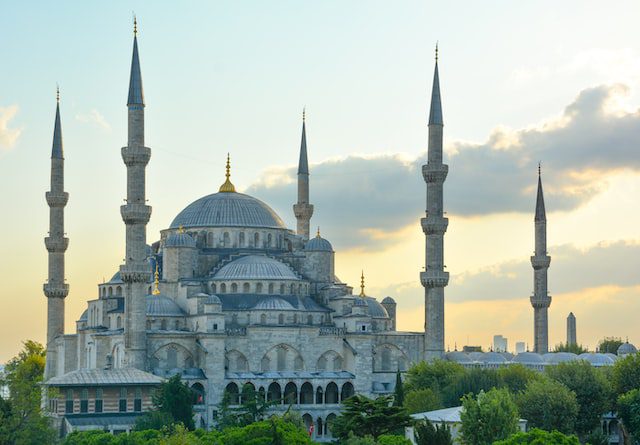
The Turkish economy has been on the rise in recent years, becoming one of the fastest growing economies in the world. As a result, it has become an attractive destination for billionaires due to its robust economic growth, favourable demographics, strategic location, and attractive tax incentives.
The country’s improving business environment and growing tourism sector are also contributing factors. Therefore, the country has attracted the attention of billionaires from all over the globe, who are now investing in Turkey. Here are some of the reasons why:
Robust economic growth
Turkey’s economy grew by 7.4% in 2018 – faster than any other G20 country. This was driven by strong domestic demand, with private consumption and investment both increasing significantly. The government is also pursuing an ambitious reform agenda, which is helping to improve the business environment and attract more Foreign Direct Investments (FDI).
Favourable demographics
Turkey has a young and rapidly-growing population (the median age is just 30 years old), which provides a large potential consumer base for businesses operating in the country.
Additionally, Turkey’s labour force is relatively well-educated and productive (ranking 4th out of 73 countries in terms of working hours per week), making it an attractive destination for companies looking to set up operations there.
Strategic location between Europe and Asia
Turkey occupies a key strategic geographical position, sitting at the crossroads between Europe and Asia. This makes it an ideal base for businesses looking to tap into both markets. Its extensive transport infrastructure – including a growing network of highways, airports and seaports – makes it easy to move goods and people around the country.
Attractive tax incentives
The Turkish government offers a number of tax incentives to businesses operating in the country, including reduced rates of corporate tax (20% for most companies) and VAT (18%). These favourable conditions are helping to attract more foreign investment into Turkey.
Robust business environment
Turkey has been making steady progress in improving its business environment in recent years. It ranks 55th out of 190 countries on the World Bank’s 2019 Doing Business report, up from 74th place just five years ago. This improvement is due to reforms such as making it easier to start a business and pay taxes, as well as increasing access to credit.
Stable political environment
Turkey has been stable politically since the early 2000s, following a period of instability in the 1990s. This stability has helped create an attractive environment for businesses and investors alike. Additionally, the ruling Justice and Development Party (AKP) has shown a commitment to economic reform and attracting foreign investment.
Growing tourism industry
Turkey is one of the world’s most popular tourist destinations, with over 40 million visitors in 2017. This is generating significant revenue for the country and helping to boost economic growth. The government is also investing heavily in the tourism sector, with plans to build new airports and improve infrastructure.
Diversified economy
The country’s economy is relatively diversified, with strong sectors such as agriculture, manufacturing and services. This diversity reduces the country’s reliance on any one particular industry, making it more resilient to economic shocks.
Additionally, it provides opportunities for businesses operating in different industries to tap into Turkey’s growing economy.
Favourable investment conditions
The country offers a number of conditions that are favourable for investors, including a young and rapidly-growing population, a strategic location between Europe and Asia, improving business environment and tax incentives for businesses. These factors are all helping to attract more foreign investment into Turkey.
Robust banking system
Turkey’s banking system is relatively strong and well-regulated, providing a reliable source of financing for businesses operating in the country. Additionally, the government has been working to improve access to credit, which is helping to support economic growth.
One of the world’s richest men, Roman Abramovich, with a net worth of US$13.6 billion, has been investing in Turkey in recent years. In 2016, he acquired a stake in Turkish supermarket chain Migros for $500 million. He also owns stakes in two Turkish banks – Garanti Bank and Turk Telekom – as well as energy company Enerjisa.
Abramovich is not the only billionaire investing in Turkey. Other notable billionaires with investments in the country include Bernard Arnault (owner of luxury goods group LVMH), who acquired a stake in Turkish conglomerate Dogus Holding for $300 million in 2015; and Murat Ulker (owner of food company Yildiz Holding), who invested $100 million in a new hotel project in Istanbul earlier this year.
Abramovich’s investments come at a time when Turkey is experiencing strong economic growth. The country’s GDP grew by 7.4% in 2018, outpacing all other G20 countries.
This growth is being driven by domestic demand, with private consumption and investment both increasing significantly. The government is also pursuing an ambitious reform agenda that is improving the business environment and attracting more foreign investment.
Turkey’s favourable demographics are another key factor behind Abramovich’s investments there. The country has a young population (the median age is just 30 years old) that provides a large potential consumer base for businesses operating there.
Additionally, Turkey’s labour force is relatively well-educated and productive (ranking 4th out of 73 countries in terms of working hours per week), making it an attractive destination for companies looking to set up operations there.
As more billionaires move their investments to Turkey, it is clear that the country has become an attractive destination for the world’s richest people. This is due to its strong economic growth, favourable demographics, strategic location, and improving business environment.
In conclusion, there are a number of reasons why billionaires are moving to turkey. The country offers strong economic growth prospects, favourable demographics, a strategic location and attractive tax incentives. Its business environment is improving and the tourism sector is growing rapidly. These conditions all make Turkey an attractive destination for investors and businesses alike.







